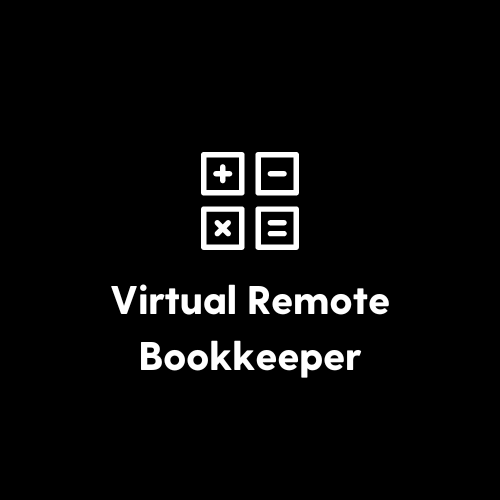
Starting a business is an exciting journey, but managing your finances can quickly become overwhelming without a proper bookkeeping system in place. A scalable bookkeeping system is essential for startups because it ensures financial accuracy, simplifies tax reporting, and helps monitor cash flow. As your business grows, your bookkeeping needs will evolve, and having a flexible system from the start will save you time and headaches down the line.
In this guide, we’ll walk you through the steps to set up a scalable bookkeeping system for your startup that is not only efficient but also grows alongside your business.
Why Bookkeeping is Crucial for Startups
Before diving into the setup process, it’s important to understand why bookkeeping is essential for your startup:
- Financial Transparency: Proper bookkeeping gives you a clear view of your financial health, helping you make informed decisions.
- Compliance: It ensures you’re following legal and tax regulations, avoiding costly penalties.
- Attracting Investors: Investors need to see well-organized financial statements to trust your business.
- Growth Tracking: A scalable system helps you track the growth of your business and identify areas where you need to cut costs or invest more.
1. Choose the Right Bookkeeping Method
The first step in creating a scalable bookkeeping system is deciding between cash-based or accrual-based bookkeeping.
- Cash-Based: This method records transactions when money changes hands. It’s simpler and ideal for small startups with limited transactions.
- Accrual-Based: This method records transactions when they occur, regardless of when cash is exchanged. It’s more complex but provides a clearer picture of your company’s financial health.
For most growing startups, accrual-based bookkeeping is preferable as it gives a more accurate view of your financial position.
2. Select Scalable Accounting Software
A key component of a scalable bookkeeping system is the right accounting software. For startups, cloud-based accounting software is often the best option because it allows for easy collaboration and access from anywhere. Look for software that offers features like:
- Automated Invoicing: Saves time and reduces human error.
- Expense Tracking: Automatically categorize and track expenses.
- Bank Reconciliation: Sync with your bank account for seamless financial tracking.
- Financial Reporting: Generate real-time reports such as balance sheets, cash flow statements, and profit and loss statements.
Popular options include QuickBooks Online, Xero, and FreshBooks, all of which offer scalable solutions for growing businesses.

3. Set Up a Chart of Accounts
Your Chart of Accounts (COA) is the foundation of your bookkeeping system. It categorizes all financial transactions, making it easier to track and report income, expenses, assets, liabilities, and equity. For a scalable bookkeeping system, structure your COA in a way that allows you to add new categories as your business grows.
- Income Accounts: Separate income streams for different services or products.
- Expense Accounts: Create categories for major expenses like rent, salaries, marketing, and software subscriptions.
- Asset Accounts: Track items of value owned by the business (e.g., equipment, accounts receivable).
- Liabilities Accounts: Include debts, loans, and accounts payable.
4. Implement an Efficient Invoicing and Payment Process
Timely invoicing and payment processing are critical for maintaining healthy cash flow. As your startup grows, so will the volume of invoices you handle. Use your accounting software’s invoicing features to automate as much as possible.
- Set up recurring invoices for clients you bill regularly.
- Automate payment reminders to ensure faster payment.
- Integrate with payment processors like Stripe or PayPal to allow customers to pay online.
By automating these processes, you’ll save time and ensure a consistent cash flow as your business expands.
5. Track Expenses and Monitor Cash Flow
It’s easy to lose track of expenses as your startup grows, leading to cash flow problems. Tracking your expenses accurately from the beginning helps you stay on top of your financial health. Some tips include:
- Use a business credit card or a separate bank account solely for business expenses.
- Automate expense tracking by syncing your accounting software with your business bank account.
- Categorize expenses correctly to track spending patterns and find areas to cut costs.
Regularly reviewing your cash flow statement helps you avoid cash shortages and plan for future investments.
6. Plan for Growth with Financial Forecasting
A scalable bookkeeping system must include financial forecasting to plan for the future. Use your bookkeeping data to create forecasts based on past trends and growth projections. These forecasts should cover:
- Revenue: Anticipate future sales based on past performance and market conditions.
- Expenses: Estimate future expenses, including potential hires, marketing campaigns, and equipment purchases.
- Cash Flow: Ensure you’ll have enough cash on hand to cover your expenses during slow periods or while waiting for client payments.
Financial forecasting is key for startups looking to secure funding or prepare for significant growth.
7. Review and Adjust Regularly
As your startup grows, your bookkeeping needs will evolve. Set up regular reviews (monthly or quarterly) of your financial statements to ensure everything is running smoothly. Look for opportunities to streamline processes and adjust your system to accommodate new revenue streams, employees, or regulations.
Conclusion
Setting up a scalable bookkeeping system for your startup is crucial to managing your finances efficiently as your business grows. By choosing the right accounting software, organizing your chart of accounts, and automating key processes, you’ll be prepared for financial success. With proper bookkeeping, you’ll have the clarity you need to make informed business decisions and achieve long-term growth.


